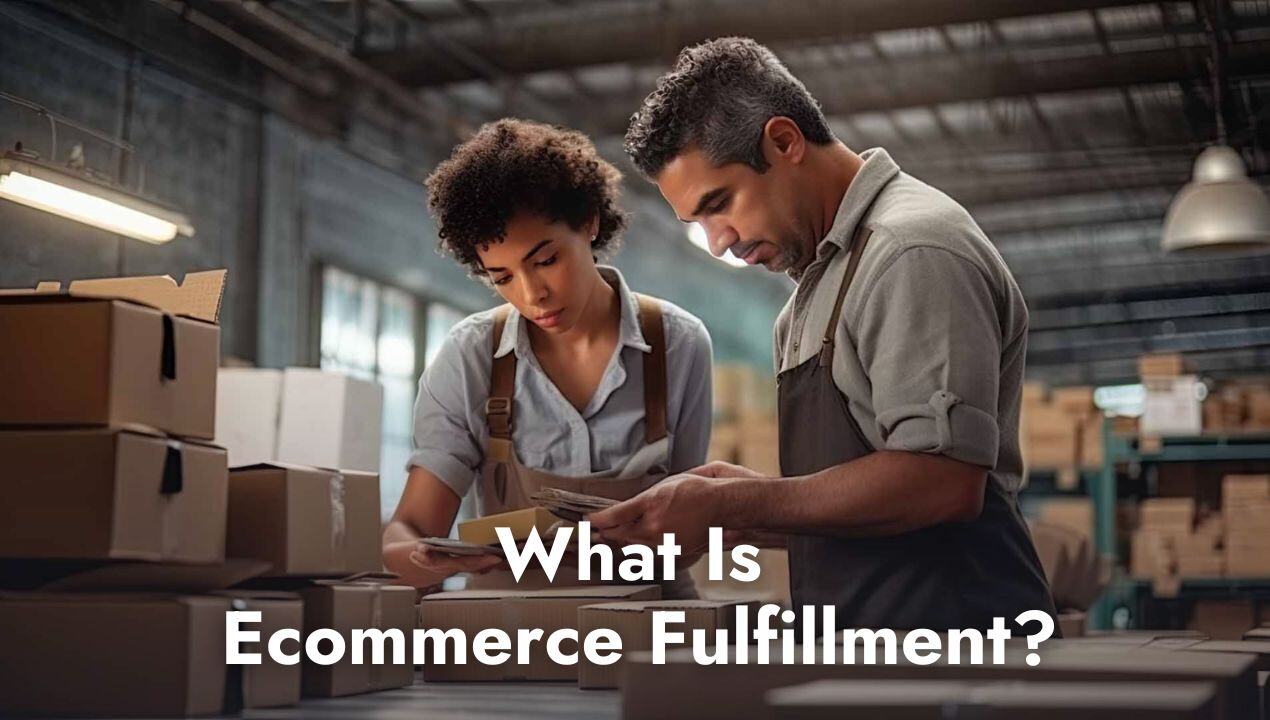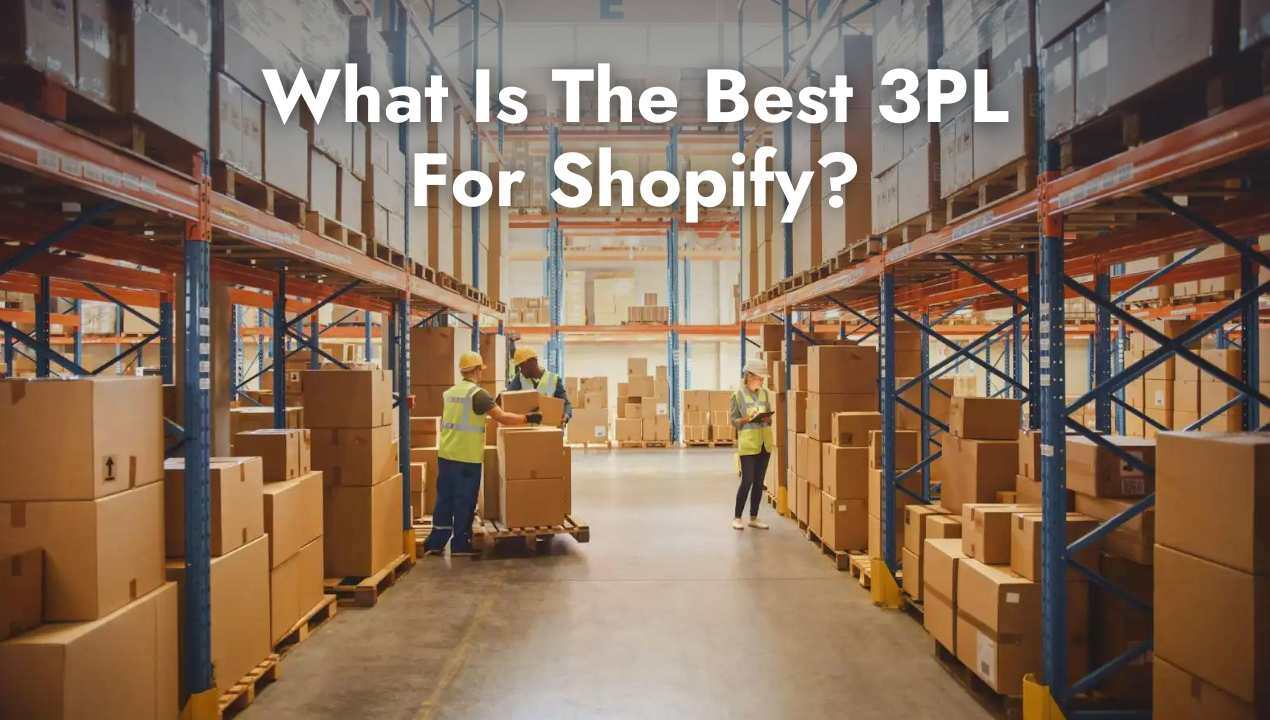Share this
When Should You Outsource Fulfillment for Subscription Boxes?
by Shipfusion Team on Sep. 10, 2024

If you're running a subscription box business, you know that fulfillment plays a crucial role in keeping your customers satisfied. But as your business grows, you may find yourself facing a common dilemma: should you continue to handle fulfillment in-house, or should you outsource to a third-party provider? In this complete guide, we'll explore the ins and outs of outsourcing fulfillment for subscription boxes, helping you make an informed decision that aligns with your business goals and needs.
Understanding Outsourcing in the Subscription Box Industry
Before diving into the nitty-gritty, let's first define what outsourcing and fulfillment mean in the context of subscription boxes. Outsourcing refers to the practice of entrusting certain business functions, such as warehousing, order processing, and shipping, to an external service provider. Fulfillment, on the other hand, encompasses all the activities involved in getting your subscription boxes from your facility to your customers' doorsteps.
Outsourcing in the subscription box industry goes beyond just delegating tasks to external partners; it represents a strategic decision that can significantly impact the overall efficiency and success of a business. By outsourcing fulfillment operations, subscription box companies can free up valuable time and resources to focus on product development, marketing strategies, and customer engagement initiatives.
Defining Outsourcing and Fulfillment
Outsourcing can be a strategic move for subscription box businesses aiming to streamline operations, reduce costs, and focus on core competencies. Fulfillment, the backbone of any subscription box business, involves tasks such as inventory management, picking and packing boxes, labeling, and arranging for shipments.
Effective fulfillment is crucial for subscription box companies to deliver a seamless and delightful unboxing experience to their customers. From ensuring accurate order processing to timely delivery, every step in the fulfillment process plays a vital role in shaping customer satisfaction and loyalty. By outsourcing these critical functions to experienced fulfillment partners, subscription box businesses can optimize their supply chain management and logistics operations.
The Role of Outsourcing in Subscription Box Businesses
Outsourcing fulfillment allows subscription box businesses to tap into the expertise and resources of specialized providers. These providers often have established networks, efficient processes, and advanced technology, making them well-equipped to handle the complexities of fulfillment in the ecommerce landscape. By leveraging outsourcing, subscription box businesses can potentially enhance customer satisfaction and achieve scalability.
Moreover, outsourcing can provide subscription box companies with access to valuable data and analytics that can offer insights into customer behavior, inventory trends, and shipping performance. By leveraging this data, businesses can make informed decisions to optimize their operations, improve forecasting accuracy, and drive continuous improvement in their subscription box offerings. Ultimately, outsourcing in the subscription box industry is not just about delegating tasks but about forging strategic partnerships that drive growth and innovation.
The Pros and Cons of Outsourcing Fulfillment
Now that we have a better understanding of outsourcing and fulfillment, let's take a closer look at the advantages and potential drawbacks of outsourcing your subscription box fulfillment operations.
Benefits of Outsourcing Fulfillment
One of the primary benefits of outsourcing fulfillment is cost savings. When you outsource, you can avoid significant upfront investments in warehousing space, technology, and staff. Instead, you pay for the services you need, often on a per-order basis, allowing you to scale your fulfillment costs more predictably as your business grows.
But the advantages of outsourcing go beyond just cost savings. Outsourcing fulfillment can also save you time and effort. By entrusting fulfillment to a dedicated provider, you can redirect your focus and resources toward other critical areas of your business, such as marketing, product development, and customer acquisition.
Furthermore, outsourcing can grant you access to expertise and infrastructure that may not be feasible to build in-house. The best 3PLs have honed processes and technology over time to optimize efficiency, accuracy, and shipping speeds. This can translate into improved order fulfillment rates, reduced shipping errors, and happier customers.
Potential Drawbacks of Outsourcing Fulfillment
Outsourcing fulfillment is not without potential challenges. One such challenge is loss of control. When you entrust your fulfillment operations to a third party, you must relinquish some level of control over these critical processes. While this can be a positive aspect in terms of efficiency and expertise, it also means you are relying on another company to meet your customers' expectations.
Another potential drawback is the risk of a misalignment in values or standards. Your chosen fulfillment partner may not always share the same commitment to quality control, sustainability practices, or customer service as your business. Therefore, conducting thorough due diligence when selecting a fulfillment provider is crucial to mitigate these risks.
However, it's important to note that outsourcing fulfillment is not a one-size-fits-all solution. The decision to outsource should be based on a careful evaluation of your specific business needs, goals, and resources. It's essential to consider factors such as the complexity of your fulfillment operations, the level of control you are comfortable relinquishing, and the potential impact on your brand image and customer experience.
Additionally, it's worth exploring the option of a hybrid fulfillment model, where you combine in-house and outsourced operations. This approach allows you to retain control over certain aspects of fulfillment while leveraging the expertise and resources of a third-party provider for others. It can provide a balance between cost savings, control, and scalability.
Key Factors to Consider When Outsourcing Fulfillment
Having weighed the pros and cons, you're likely wondering if outsourcing fulfillment is the right move for your subscription box business. Consider the following factors to make an informed decision:
Assessing Your Business Needs
Start by evaluating your current and future business needs. If you anticipate rapid growth, seasonal fluctuations, or limited warehousing capacity, outsourcing fulfillment may be a viable solution. On the other hand, if you have established efficient in-house processes and are confident in your ability to meet demand, continuing to handle fulfillment internally may be preferable.
Outsourcing fulfillment can also provide scalability for your business. By partnering with a fulfillment center that has the infrastructure and resources to handle increased order volumes, you can focus on other aspects of your business, such as marketing and product development. This flexibility allows you to adapt to changing market conditions and customer demands without the constraints of managing fulfillment in-house.
Evaluating Potential Fulfillment Partners
When evaluating potential fulfillment partners, look beyond the cost. Consider their track record, client testimonials, and their ability to integrate with your existing systems. Assess their infrastructure, warehouse locations, shipping carriers, and technology capabilities to ensure they align with your business needs. Additionally, inquire about their contingency plans for unexpected events, such as natural disasters or system failures, to ensure your customers' orders will still be fulfilled.
Furthermore, consider the level of customer service provided by the fulfillment partner. Your customers' experience with order fulfillment directly impacts their satisfaction and loyalty to your brand. A fulfillment center that prioritizes accuracy, timeliness, and communication can enhance the overall customer experience and contribute to positive reviews and repeat business. Look for a partner that shares your commitment to customer service excellence to maintain and grow your subscriber base.
The Process of Outsourcing Fulfillment
If you've decided to outsource your fulfillment operations, it's essential to understand the process involved. By breaking it down into manageable steps, you can ensure a smooth transition and minimize disruptions to your business.
First and foremost, conducting thorough research is crucial when it comes to identifying potential fulfillment partners that align with your business needs. Take the time to explore different options and evaluate their capabilities. Look for partners who have experience in your industry and can handle the volume and complexity of your orders. Reach out to them and request detailed information about their services, rates, and any specific requirements they may have for onboarding new clients.
Once you've selected a partner, it's time to dive into the nitty-gritty details. Make sure you have all the necessary documentation in place, such as service agreements and non-disclosure agreements. These legal documents will protect both parties and establish clear expectations. Additionally, provide your chosen partner with detailed information about your products, packaging requirements, and any special handling instructions. This level of transparency will ensure that they can fulfill orders accurately and efficiently, meeting the high standards you've set for your business.
Next comes the crucial step of integrating your ordering system with your fulfillment partner's inventory management and ecommerce order fulfillment systems. This integration is the backbone of a successful outsourcing relationship. It enables real-time order processing and inventory tracking, reducing errors and providing customers with accurate shipment updates. Collaborate closely with your fulfillment partner during this process to ensure a seamless integration that aligns with your business operations.
Transitioning to an Outsourced Fulfillment Model
As you transition to the outsourced fulfillment model, effective communication is key. Transparently inform your customers about the changes taking place. Clearly explain the new fulfillment process, any potential adjustments to shipping timeframes, and provide them with the necessary support channels to address any concerns or issues that may arise. By keeping your customers informed, you can maintain their trust and loyalty.
Throughout the transition period, it's crucial to keep a close eye on key performance indicators (KPIs). Monitor order accuracy, shipping times, customer feedback, and overall satisfaction to ensure the fulfillment process is meeting your expectations and those of your customers. Regularly communicate with your fulfillment partner to address any areas for improvement or resolve any issues that may arise. This proactive approach will help you fine-tune the outsourcing process and continuously enhance the customer experience.
Remember, outsourcing fulfillment is not just about offloading tasks; it's about finding a reliable partner who can become an extension of your business. With careful planning, effective communication, and continuous monitoring, you can successfully navigate the process of outsourcing fulfillment and unlock the benefits it brings to your business.
Maintaining Quality Control When Outsourcing
Quality control is a critical element of any fulfillment operation. When outsourcing, ensuring consistent quality becomes a joint effort between you and your fulfillment partner. Here are some strategies to maintain quality control:
Ensuring Quality in Outsourced Fulfillment
Establish clear quality standards and communicate them to your fulfillment partner. This includes product inspection protocols, packaging guidelines, and labeling requirements. By clearly defining your expectations, you set the foundation for a successful partnership.
Addressing Quality Concerns with Your Fulfillment Partner
No matter how well you establish quality standards and communicate with your fulfillment partner, there may still be instances where quality concerns arise. When this happens, it's crucial to address them immediately.
Collaborate with your fulfillment partner to identify the root cause of the problem. Is it a breakdown in their processes? Is there a need for additional training or resources? By working together, you can implement corrective actions that address the issue at its core.
Remember, outsourcing can provide numerous benefits, such as cost savings, time efficiency, and access to expertise and technology. However, it's crucial to prioritize maintaining control and quality throughout the entire process. By making informed decisions, implementing effective strategies, and fostering a collaborative relationship with your fulfillment partner, you can leverage outsourcing to strengthen your subscription box business and deliver exceptional customer experiences.
Get the Best Fulfillment for Subscription Boxes from Shipfusion
With Shipfusion, scaling your subscription box business has never been easier. Say goodbye to the complexities of fulfillment and embrace the seamless growth that comes with a third-party logistics (3PL) partner that's an extension of your team. Our dedicated support, cutting-edge technology, and strategic warehouse locations are designed to keep you ahead of the curve. Whether it's custom packaging or handling sales spikes, we've got you covered. Don't let logistics hold you back. Get a custom quote today and scale without limits!
Share this
You May Also Like
These Related Articles

What Is Ecommerce Fulfillment?

What Is The Best 3PL For Shopify?

Finding The Right 3PL Ecommerce Fulfillment Partner
- April 2025 (18)
- March 2025 (26)
- February 2025 (26)
- January 2025 (37)
- December 2024 (16)
- November 2024 (23)
- October 2024 (22)
- September 2024 (27)
- August 2024 (9)
- July 2024 (8)
- June 2024 (5)
- May 2024 (8)
- April 2024 (8)
- March 2024 (6)
- February 2024 (6)
- January 2024 (5)
- December 2023 (3)
- November 2023 (3)
- October 2023 (5)
- September 2023 (4)
- August 2023 (2)
- July 2023 (1)
- June 2023 (4)
- March 2023 (2)
- October 2022 (1)
- September 2022 (5)
- August 2022 (4)
- July 2022 (7)
- June 2022 (4)
- May 2022 (4)
- April 2022 (6)
- March 2022 (2)
- February 2022 (1)
- January 2022 (3)
- December 2021 (2)
- November 2021 (4)
- October 2021 (2)
- September 2021 (5)
- August 2021 (4)
- July 2021 (4)
- June 2021 (3)
- May 2021 (2)
- April 2021 (3)
- March 2021 (3)
- February 2021 (3)
- January 2021 (2)
- December 2020 (4)
- November 2020 (2)
- October 2020 (4)
- September 2020 (2)
- July 2020 (5)
- June 2020 (4)
- May 2020 (2)
- April 2020 (2)
- March 2020 (4)
- February 2020 (1)
- December 2019 (1)
- May 2018 (1)
- March 2018 (2)
- February 2018 (3)
- January 2018 (3)
- November 2017 (3)
- July 2017 (4)
- March 2017 (3)
- February 2017 (5)
- January 2017 (3)
- December 2016 (4)
- November 2016 (6)
- October 2016 (6)
- October 2015 (1)
- September 2015 (1)
- June 2015 (3)
- May 2015 (3)
- August 2014 (1)
- July 2014 (1)
- March 2014 (1)
- February 2014 (1)